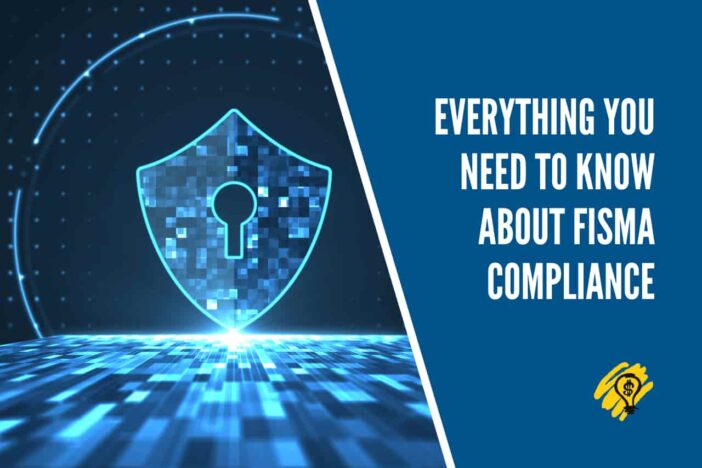The Federal Information Security Management Act (FISMA) is a federal law that is part of the E-Government Act. Essentially, it’s a risk-based policy that brings about cost-effective security.
FISMA requires federal agencies to develop, document, and implement a program to secure information and systems that support the agency’s operations, including those provided or managed by a third-party agency or contractor.
In 2014, FISMA was modified in response to the rising number of cyberattacks. The changes reduced the reporting, strengthened monitoring, and enhanced the focus on agency compliance and incident reporting.
Who Does FISMA Apply To?
Originally applied only to federal agencies, the FISMA compliance is now expanded to all companies that have access to, possess, or manage federal information. As a result, state and local governments administering federal programs such as Medicaid, Medicare, federally-backed student loans, and any private sector company that works with the federal government under a contract must be FISMA compliant.
What Are the Most Important FISMA Requirements?
The requirements for being FISMA compliant are vast, but we’ve singled out the seven most important ones:
Keep an Inventory of IT Systems
Each federal agency or contractor collaborating with the government needs to keep an inventory of all their organization’s information systems. In addition, they must maintain an inventory of the connections between those systems, as well as the internal systems and those outside their control.
Risk Categorization
The federal data and IT systems need to be categorized according to their risk level and be protected accordingly. For example, the systems considered to be high-risk are those that store highly sensitive data, and its loss might pose a significant risk for the agency. Likewise, a moderate-risk system contains sensitive information and requires greater security, whereas a low-risk system doesn’t contain sensitive information.
Develop a System Security Plan
Every agency must create and maintain a System Security Plan that defines how their security control will be implemented. The plan must be reviewed and updated to include accurate action plans and milestones.
Apply Security Controls
There are numerous security controls recommended for FISMA compliance. However, agencies don’t need to implement all the security controls. Instead, they should assess their organization’s security requirements and implement the appropriate security controls. In addition, the agencies must document the chosen controls in their system security plan.
Risk Assessments
One of the essential requirements for FISMA compliance is risk assessment. The NIST guidelines suggest that organizations conduct a three-tiered risk assessment to spot risks at the organizational, business, and information system levels. The evaluation will help them determine whether additional security controls are needed.
Certification and Accreditation
Organizations must conduct an annual security review to check if the security controls in place are solid or if there’s a need to change existing security practices and implement new measures. FISMA certification and accreditation process has four steps: initiation and planning, certification, accreditation, and monitoring.
Continuous Monitoring
Being FISMA compliant requires continuous monitoring of systems to spot weaknesses and vulnerabilities and ensure the security controls in place effectively mitigate them and protect the federal information and systems.
FISMA Compliance Benefits
Being FISMA compliant can provide numerous benefits for the agency. First of all, it helps them adopt a risk management-centered approach. The agencies are required to adopt a security program that significantly minimizes the risks. Consequently, they can manage their risks proactively before the damage is done.
Moreover, as the threat landscape evolves, agencies need to update their risk policies continually which allows them to be prepared to prevent or respond to any type of attack. With FISMA compliance, agencies are also more resilient to cyber threats and are able to contain the breach and address the vulnerability that caused it.
Being FISMA compliant also benefits the private sector companies that aspire to work with federal agencies. Implementing FISMA-compliant solutions will give them an advantage when trying to add new business from government agencies. Moreover, the compliance helps them cover the security best practices, ensuring their data is safe.





